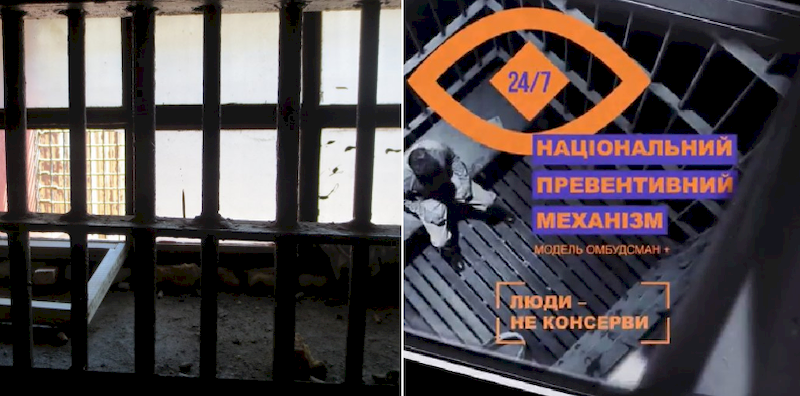Ukraine’s new Human Rights Ombudsman is placing fight against torture in jeopardy

A vital mechanism for preventing torture and ill-treatment in Ukrainian places of confinement is in danger, with human rights organizations placing the blame with the new, controversially elected, Human Rights Ombudsman Ludmila Denisova. Any mechanism that involves monitoring of prisons and other closed institutions must be independent and enjoy the trust of all parties, and it is this independence that is now being placed in question.
At a press conference on June 6, representatives of the Ukrainian Helsinki Human Rights Union [UHHRU] and other rights organizations spoke of the progress made since 2012 in developing a National Preventive Mechanism against Torture [NPM]. Ukraine had committed itself to develop such a mechanism when it ratified the Optional Protocol to the Convention against Torture and other Cruel, Inhuman or Degrading Treatment or Punishment back in July 2006, yet did nothing for the following six years. It was under the former Ombudsman Valeria Lutkovska in 2012 that a mechanism finally began to emerge for monitoring close on four thousand closed institutions in which around one million Ukrainians are currently living.
Over one thousand closed institutions were visited during the next six years by representatives of the Ombudsman’s Office, together with civic volunteers. Their aim was to monitor both the conditions in such institutions, and how the rights of those held there were being observed. There were 163 such civic monitors who visited the closed institutions at their own expense.
The human rights groups warn that civic groups are currently being pushed out of the work of the NPM and visits are taking place without civic monitors. They say that Denisova is ignoring NGOs’ attempts to achieve dialogue on such issues.
Yury Belousov, Executive Director of the Expert Centre for Human Rights who formerly headed the Office of the Ombudsman’s NPM Department, stresses that it is ultimately people held in places of confinement who will suffer as a result of the new Ombudsman’s refusal to work with civil society. The heads of the closed institutions in which they’re held will know that civic groups will not be monitoring them. He warns that this is likely to adversely impact upon observance of human rights in the institutions.
Oleksandr Hatulyatulin, from the NGO Ukraine without Torture, reported that for the first time in six years, visits are taking place to institutions in the Odesa Oblast without the involvement of civic monitors. These are the people who have gained considerable experience and understanding of how to detect signs of torture and ill-treatment, and their exclusion must undermine the level of such checks.
UHHRU lawyer Darya Sviridova pointed to the experience of the last four years in occupied territory (Russian-occupied Crimea and the so-called ‘Donetsk and Luhansk as proof of how terrible it would be if Ukraine were to lose the mechanisms of control and monitoring developed over recent years.
The human rights groups have formed a coalition aimed at lobbying for an independent NPM and the continuation of unbiased monitoring of places of confinement.
Ludmila Denisova was appointed Human Rights Ombudsman on March 15, 2018. She was at the time an MP and was therefore elected by her parliamentary colleagues through procedure which was in open breach of the Law on the Human Rights Ombudsperson (See: . Political Shenanigans to the End: Ukraine’s Parliament elects their own MP as ‘Human Rights Ombudsman’





